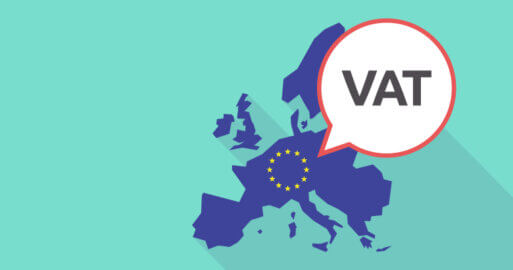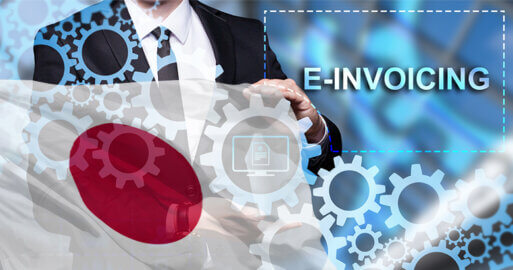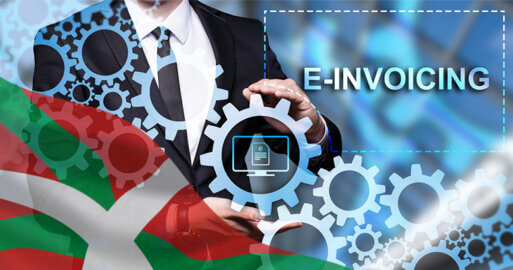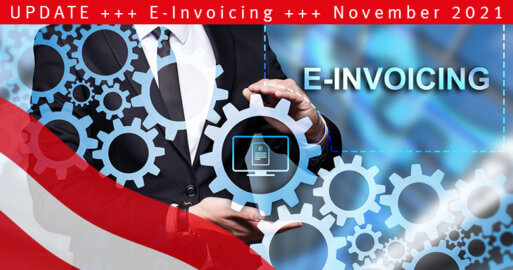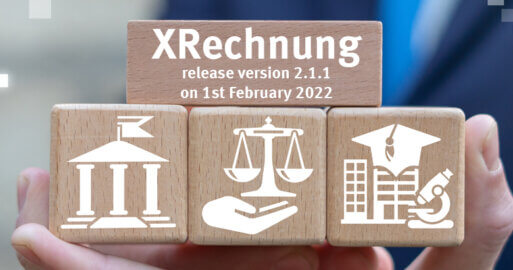Mandatory B2B E-Invoicing in France – An Expert View
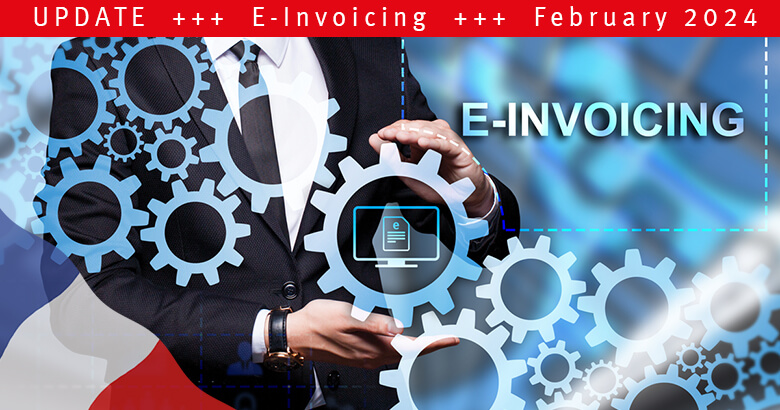
Electronic invoicing brings economic advantages and is also progressively becoming a global requirement. In 2017, France introduced an e-invoicing directive for Business-to-Government (B2G) transactions, which became legally binding on January 1, 2020. The implementation has been highly successful, with approximately 140 million invoices already processed through the designated Chorus Pro platform for public institutions and government entities. As of September 1, 2026, mandatory regulations for e-invoicing and e-reporting will extend to the Business-to-Business (B2B) sector, affecting large and medium-sized enterprises. And by September 1, 2027, the B2B regulations will become mandatory for all businesses regardless of size.
We interviewed the president of the French Forum National de la Facture Electronique in our Paris office to discuss electronic invoicing in France and the new regulations scheduled to take effect in 2026.
Watch the full interview or read the key takeaways in our blog.
Timeline of the new regulations for mandatory B2B e-invoicing in France
Before we dive deeper into the key takeaways from the interview, let’s look at the timeline as agreed in Ordonnance n° 2021-1190 and Ordonnance n° 2014-697. You can find more specific details about the timeline in our previous blog.
Beginning in September 2026, all businesses must be able to receive and accept e-invoices, and additionally, all large and medium-sized companies operating in France must be able to issue electronic invoices.
This requirement also extends to foreign companies that are under the purview of Value Added Tax (VAT) regulations in France and are involved in VAT collection.

What is the objective of mandatory B2B e-invoicing in France?
The objective of this reform is to streamline the invoicing process, emphasizing the exchange of invoices and incorporating mechanisms for data control and transmission of information to tax authorities. Additionally, it includes an e-reporting element, meaning that any non-electronic invoices are liable to French VAT. Hence, the primary goal of this reform is to establish regulations for the future exchange of invoices.
E-invoicing is often part of broader efforts to:
- Digitalize business processes
- Promote sustainability by reducing paper usage
- Facilitate faster, more secure, and cost-effective exchanges of invoices
Additionally, in the context of tax regulations, e-invoicing systems improve compliance and provide a streamlined mechanism for reporting to tax authorities.
How will B2B e-invoicing work in France?
As of 2026, companies in the B2B sector will have three options for sending electronic invoices and meeting reporting requirements:
- Similar to the B2G sector, they can opt to utilize the services of Partner Dematerialisation Platforms (PDP) for e-invoicing and electronic reporting. In this scenario, the solution provider assumes the dual responsibilities of:
– Transmitting electronic invoices
– Conveying mandatory data to the French tax administration
The certified partner interfaces with the national platform, Chorus Pro, through its proprietary cloud solution. - Similar to PDPs, companies can also choose the services of Dematerialisation Operators (OD). However, these service providers in the market lack government certification. Broadly speaking, they offer functions akin to PDPs. A key distinction is that they are unable to directly issue or receive invoices without relying on the Public Invoicing Portal (PPF) as an intermediary in the e-invoice process, which is not a disadvantage.
- In addition to overseeing the management of the directory, the Public Invoicing Portal (PPF) offers a complimentary service to businesses opting to use the platform directly, bypassing connection through an OD or a PDP. The PPF can be accessed and utilized manually through a web portal or integrated directly via API and EDI.
Chorus Pro serves as the primary hub for overseeing electronic invoicing in France. It stands out as the singular interface that caters to all authorities across the country, offering the flexibility to utilize both traditional and well-established EDI channels and formats. While suppliers and public clients can use its services without incurring charges, effective utilization demands a profound understanding of the French administrative context, up-to-date awareness of the dynamically evolving demands and regulations imposed by the tax administration, and, naturally, proficiency in the French language.
E-reporting in France
Companies are obligated to adhere to various requirements, including the transmission of data to customers and tax authorities, along with the imperative of legally and tax-compliant archiving. Presently, the requirement has been established that details concerning payments, B2C transactions and international B2B transactions must be included in digital tax reports, commonly referred to as e-reporting. This is contingent on whether your business is involved in international shipping and receiving, with a particular emphasis on a PEPPOL connection. This is why many companies opt to outsource these tasks.
E-invoicing formats in France
Selecting the right option – PDP, OD or self-use of PPF – may also have implications on integration possibilities and processable formats. There is an ongoing debate on whether EDIFACT invoices could pass more easily between PDPs and if they could eventually be integrated into different types of base messages.
Before clarifying this question, let’s have a look at the e-invoicing formats in France. As a fundamental rule, every electronic invoice within the EU is expected to adhere to the EN16931 standard. In France, three primary formats have been explicitly endorsed, and they are also recognized in several hybrid variations:
- UBL, or Universal Business Language, is a standard for electronic business documents, including e-invoices. It provides a standardized XML-based framework for digitally representing various business documents, promoting interoperability between different software systems. In the context of e-invoicing, UBL facilitates the exchange of invoices electronically, streamlining processes and reducing errors in business transactions. It aims to create a common language for business documents, making it easier for different software applications to understand and process information, ultimately enhancing efficiency in electronic commerce.
- The Cross-Industry Invoice (CII) is another XML-based standard for electronic invoicing developed by the United Nations Centre for Trade Facilitation and Electronic Business (UN/CEFACT). It serves as a universal format for electronic invoices, aiming to facilitate seamless communication of invoice data across various industries and sectors. CII provides a standardized way to represent information such as buyer and seller details, item descriptions, quantities, prices, and payment terms, enhancing interoperability and efficiency in electronic invoicing.
- Factur-X is an electronic invoicing standard used in Europe, particularly in countries like Germany and France. It combines a human-readable PDF file with an embedded XML file based on the cross-industry invoice (CII) standard. This dual-format approach allows for both visual representation and automated processing of invoice information. Factur-X aims to enhance interoperability and efficiency in electronic invoicing by providing a structured format for machine-readable data, reducing errors and improving automation in invoice processing.
To elucidate the potential facilitation of EDIFACT invoices’ transition between PDP systems and their eventual integration into various base message types, it is important to say that this primarily depends on a matter of status. Upon establishment of these foundational formats, encompassing the data recognized as the invoice by tax authorities and regulations, the format itself—whether in UBL or Factur-X—takes precedence.
While these formats, particularly Factur-X, permit association with additional documents, including EDIFACT representations of the same invoice or a more intricate EDIFACT rendition, the challenge lies in determining the placement of the invoice. Invoicing holds the advantage of being deemed the entire file, which may include supplements instrumental for processing. This enables the recipient of the invoice to choose their preferred format for processing, even if tax authorities utilize the data in the XML file.
However, a minor complexity arises: The invoice issuer must ensure consistency between the content written in EDIFACT and XML. In centralized systems like Italy’s, where FatturaPA is submitted to tax authorities and subsequently forwarded to customers, the latter often awaits EDIFACT for parallel processing. The role of EDIFACT in invoice processing is already established and is expected to persist.
The French perspective emphasizes internalizing this flow within the invoice, precluding its parallel operation.
VAT in the Digital Age and mandatory B2B e-invoicing in France
Having explored the implications of mandatory B2B e-invoicing in France, there’s another compelling event for the electronic invoicing landscape in Europe: VAT in the Digital Age, or ViDA for short. ViDA is an initiative by the EU Commission that aims to modernize the European VAT systems. One goal is to transmit and check data subject to reporting requirements more quickly and accurately.
Does ViDA shake things up a little for mandatory B2B e-invoicing in France? Although ViDA is not specific to France, it is relevant to the whole of the EU and therefore, there may be implications.
ViDA represents a draft directive with the overarching objective of harmonizing European practices within the Union concerning the obligation to issue invoices. This alignment pertains not only to the obligation of electronic invoicing but primarily centers on continuous transaction control (CTC). This mechanism governs the manner in which invoices are exchanged and information is transmitted to regulatory authorities.
Anticipated by the year 2028, or shortly thereafter, it is foreseen that all European countries will transition to electronic invoicing for intra-community transactions. Furthermore, there is an inclination towards the adoption of electronic invoicing for domestic transactions, making it the standard practice, while paper-based invoicing becomes the exception. This transition aligns closely with the framework established by the French model, characterized by a decentralized structure. In this model, private platforms play a pivotal role in organizing exchanges, not necessarily mandatorily registered but, in any case, facilitating exchanges. Concurrently, national platforms serve to aggregate declarative flows, with the possibility of functioning as service platforms, mirroring the system observed in France.
How SEEBURGER can help with mandatory B2B e-invoicing in France
With more than 35 years of experience in electronic invoicing, we are a reliable and competent OD with a PDP option in the future. Today, we support e-invoicing compliance in over 55 countries and all relevant e-invoicing standards. The SEEBURGER Peppol Access Point offers a quick and easy way to exchange documents via the Peppol network. Peppol is for invoice exchange (e-invoicing) but also covers the entire electronic procurement process.
Thank you for your message
We appreciate your interest in SEEBURGER
Get in contact with us:
Please enter details about your project in the message section so we can direct your inquiry to the right consultant.
Written by: Rolf Wessel
Rolf Wessel has been product manager at SEEBURGER for software applications and services for electronic business data exchange since 2010. His focus is on solutions for SAP, electronic invoicing (e-invoicing) and innovations for the digitalization of business and technical business processes. The Forum elektronische Rechnung Deutschland (FeRD) appointed Rolf Wessel as an expert. As project manager at the United Nations Centre for Trade Facilitation and Electronic Business (UN/CEFACT), he develops international trade facilitation and establishes standards for electronic business processes. Furthermore, he represents the German delegation of the FeRD at the Franco-German workshop with the Forum National de la Facture Electronique (FNFE) and thus supports the government initiative for international standardization and harmonization of e-invoicing processes. He is a member of the working committee "Electronic Business" at the German Institute for Standardization. (DIN) and Association for Electronic Invoicing (VeR). Rolf Wessel graduated in business informatics (FH) with a focus on financial management and production planning. After working in the electrical, financial, consumer goods, software and mineral oil industries, he had been a systems analyst and IT project manager in the retail and logistics sector from 2003 to 2010.

